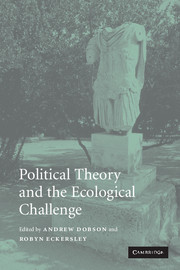12 - Freedom and rights
Published online by Cambridge University Press: 06 July 2010
Summary
‘[T]hat ill deserves the Name of confinement that hedges us in only from Bogs and Precipices.’ These words, from §57 of John Locke's Second Treatise of Government, have long posed a challenge to those who hold that a firm commitment to negative liberty – that is, to liberty understood as the absence of interference, impediment or restraint – is one of the defining features of liberalism. To be sure, Locke goes on to acknowledge that ‘Liberty is to be free from restraint and violence from others’; but this liberty, he insists, ‘cannot be, where there is no law’ (Locke 1965 [1689–90]: 348). The challenge, then, is to show either that Locke is wrong, because the laws and hedges that keep us from falling into bogs or over precipices really do deprive us of liberty, or that he is not the arch-liberal he is so often taken to be.
Locke's words also pose a second challenge, however, one which is more pertinent to the concerns of the present volume. To put it simply, does Locke gives bogs and precipices their due? Is it not possible that bogs and precipices, as parts of nature, have interests and perhaps even rights of their own – rights that require the hedging in or confining of human beings, not so that we may live freely, but so that bogs and precipices may?
- Type
- Chapter
- Information
- Political Theory and the Ecological Challenge , pp. 200 - 215Publisher: Cambridge University PressPrint publication year: 2006
References
- 11
- Cited by



